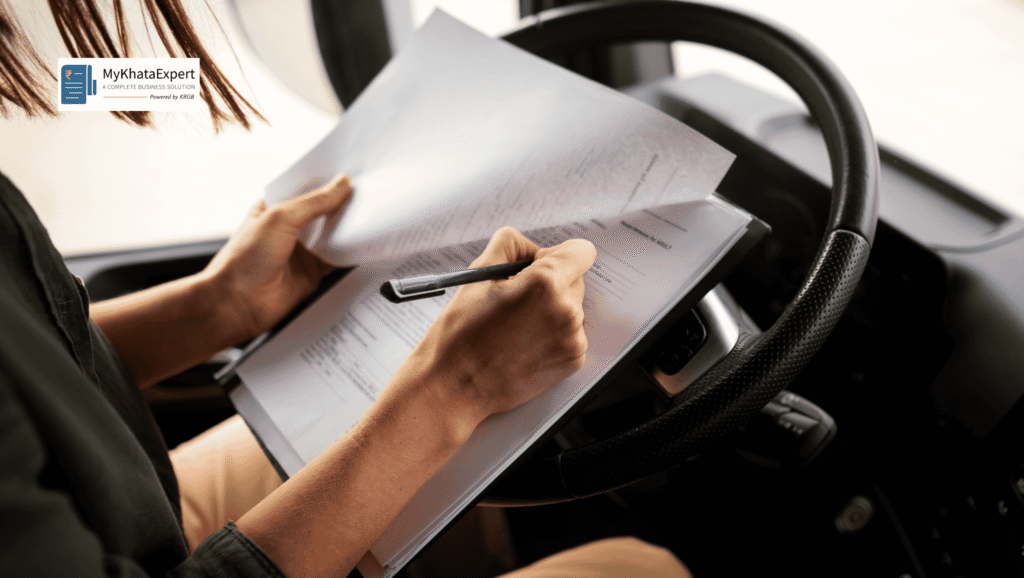Understanding E-Way Bills: A Guide for MSMEs

The E-way bills in India are a critical component of the GST regime that facilitates the seamless movement of goods across the country. Whether you are a manufacturer, trader, or transporter, understanding the E-way bill in India is essential for compliance and operational efficiency. Introduced to improve transparency and reduce tax evasion, the E-way bills in India play a pivotal role in ensuring that goods are transported in a tax-compliant manner.
In this guide, we will break down everything you need to know about the E-way bills in India—from rules and processes to generation and practical tips for businesses.
What is an E-Way Bill?

An E-way bill (Electronic Way Bill) is a document generated electronically on the GST portal for the movement of goods. It is mandatory when transporting goods worth more than ₹50,000, whether inter-state or intra-state (depending on the rules of the state). The E-way bill in India contains details of the consignor, consignee, goods being transported, and the vehicle used for transportation.
It is governed by specific e-way bill rules under the CGST Act, which businesses must follow to avoid penalties and delays.
Who Needs to Generate a E-Way Bills?
An E-way bill in India must be generated by:
- A registered person causing the movement of goods.
- A transporter moving goods on behalf of the supplier or buyer.
- In some cases, even the recipient of goods (if registered under GST).
- Unregistered transporters who enroll on the e-way bill portal.
For example, a wholesaler in Gujarat shipping goods to a retailer in Maharashtra worth ₹70,000 must generate an E-way bill in India before dispatch.
E-Way Bills Generation Process
- To generate an E-way bill in India, businesses must:
- Log in to the E-way Bill Portal.
- Navigate to “Generate New” under the e-way bill tab.
- Fill in the required details:
- GSTIN of supplier and recipient
- HSN code and description of goods
- Invoice number and date
- Value of goods
- Transporter ID/vehicle number
- Submit and get the E-way Bill Number (EBN).
- Print or save the E-way bill or share the EBN with the transporter.
Tools like MyKhataExpert simplify e-way bill generation directly from your invoices.
E-Way Bill Rules Every Business Must Know
Understanding e-way bill rules is vital for businesses to stay compliant:
- Mandatory for consignments over ₹50,000 (with few exceptions like live animals, fresh produce, etc.).
- Must be generated before the movement of goods begins.
- Validity depends on distance (1 day for every 200 km).
- Goods moved via road, rail, or air must have updated Part B details.
- Consolidated e-way bills can be generated for multiple consignments.
- Failure to follow e-way bill rules can result in the detention of goods and hefty penalties.
Validity of E-Way Bills
The E-way bill in India is valid for a limited time depending on the distance:
Up to 200 km: 1 day
For every additional 200 km or part thereof: 1 extra day
Example: If goods are being transported from Delhi to Chennai (around 2,200 km), the E-way bill in India would be valid for 11 days.
In case of unforeseen delays, the validity can be extended under specific conditions.

Common Mistakes to Avoid
Many businesses make avoidable errors in e-way bill generation, including:
- Leaving Part B (vehicle details) blank
- Using incorrect taxable value or HSN codes
- Delays in cancellation of E-way bills if goods aren’t moved
- Entering the wrong transporter ID or mismatched document details
These mistakes not only breach GST transport compliance but also affect delivery timelines and customer satisfaction.
Integration with Business Software
Integrating your invoicing or ERP system with E-way bill in India services can save time and reduce manual work.
For instance, MyKhataExpert enables:
- Auto-populating invoice details in the e-way bill form
- One-click e-way bill generation
- Tracking EBN and managing history
- Real-time status updates for compliance audits
Such tools enhance productivity and ensure accurate compliance with GST transport compliance norms.

How E-Way Bills Help in GST Transport Compliance
The E-way bill in India strengthens the GST ecosystem by:
- Tracking the movement of goods and detecting tax evasion
- Improving transparency across supply chains
- Reducing the need for physical checkpoints
- Providing real-time data to authorities
- Government ensures better control over logistics and tax collection, while businesses gain credibility and avoid compliance headaches.
Exemptions from E-Way Bills
Not all goods or transactions require an E-way bill in India. Exemptions include:
- Goods transported under customs bond
- Transit cargo to/from Nepal or Bhutan
- Goods transported by a non-motorized vehicle (e.g., handcart)
- Specific goods like LPG, vegetables, live animals, etc.
- Check the official GST portal or consult with your tax advisor for updated exemption lists.
How MyKhataExpert helps businesses
MyKhataExpert offers a one-stop digital platform for Indian businesses to:
- Automate invoicing and billing
- Generate GST-compliant documents
- Handle e-way bill generation with ease
- Track financials in real time
- Simplify GST transport compliance
Whether you’re a small manufacturer or a distributor managing multiple shipments daily, MyKhataExpert is built to reduce compliance stress and boost efficiency.
Conclusion
The E-way bill in India is more than just a regulatory requirement—it is a foundational tool for improving logistics, enhancing GST compliance, and ensuring tax transparency. As the government continues to digitize the supply chain, staying compliant with e-way bill rules will be essential for business sustainability.
By leveraging digital tools and educating your team on GST transport compliance, you can avoid penalties, delays, and operational disruptions. Platforms like MyKhataExpert are built to simplify this journey—helping you manage billing, documents, and compliance all in one place.
Related Frequently Asked Questions
Q. What is the penalty for not carrying an E-way bill in India?
As per GST transport compliance rules, the penalty may include a fine of ₹10,000 or the tax amount (whichever is higher). Authorities may also detain or seize goods and vehicles.
Q. Can an E-way bill be cancelled?
Yes. E-way bills can be cancelled within 24 hours of generation if the goods are not transported or incorrect information was entered.
Q. Is an E-way bill required for transporting empty cargo containers?
No. The E-way bill in India is not required when transporting empty cargo containers.
Q. Can E-way bills be generated via mobile apps?
Yes. You can generate and manage E-way bills via mobile-friendly platforms like MyKhataExpert, which support real-time data entry and tracking.
